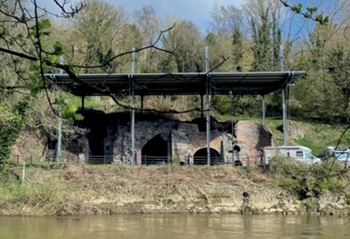Builder's licence
On 12 June 2019, the Federation of Master Builders (FMB) announced the creation of a Construction Licensing Task Force to: ‘...develop a mandatory licensing scheme for all UK construction companies to transform the sector into a high quality and professional industry.’
The Task Force is supported by a range of leading industry bodies and chaired by Liz Peace CBE, former CEO of the British Property Federation (BPF). It was created following a recommendation in ‘Licence to build: A pathway to licensing UK construction’ a research report by Pye Tait published in 2018, which set out the benefits of a licensing scheme.
A ‘Licence UK Construction’ (LUKC) campaign was launched.
Liz Peace said: “Mandatory licensing has the potential to transform our industry into a world-leading sector. Licensing will help drive up standards and help address the issue of quality and professionalism, which is some areas, is falling short. At the heart of what we’re trying to do is increase protection for the ordinary person who engages with the construction sector. Indeed, according to research by the FMB, one third of homeowners are so worried about having a bad experience with their builder, they are putting off commissioning construction work altogether. This could be costing the economy as much as £10 billion per year.”
Brian Berry, Chief Executive of the FMB, said: “In countries like Australia and Germany, building firms require a licence and we want to develop a scheme that regulates our industry in a similar manner.”
However, in November 2020, a Task Force newsletter announced it was moving away from the mandatory licensing system, which was not supported by government, and calling instead for the existing TrustMark quality scheme to be a requirement to qualify for government grant schemes.
The newsletter stated: ‘Largely due to Covid-19, but also in part due to the current government’s reluctance to introduce widespread regulation, it was decided that the campaign should tactically ‘pivot’ in the short term. Instead of wholesale mandatory licensing across the sector, the government should be lobbied to make any government grants schemes for refurbishments and energy efficiency improvements conditional upon the suppliers having an approved quality mark, such as Trustmark. This was already the case with the Green Homes Grants Scheme but should become accepted policy for any further schemes or initiatives.’
[edit] Related articles on Designing Buildings Wiki
Featured articles and news
Art of Building CIOB photographic competition public vote
The last week to vote for a winner until 10 January 2025.
The future of the Grenfell Tower site
Principles, promises, recommendations and a decision expected in February 2025.
20 years of the Chartered Environmentalist
If not now, when?
Journeys in Industrious England
Thomas Baskerville’s expeditions in the 1600s.
Top 25 Building Safety Wiki articles of 2024
Take a look what most people have been reading about.
Life and death at Highgate Cemetery
Balancing burials and tourism.
The 25 most read articles on DB for 2024
Design portion to procurement route and all between.
The act of preservation may sometimes be futile.
Twas the site before Christmas...
A rhyme for the industry and a thankyou to our supporters.
Plumbing and heating systems in schools
New apprentice pay rates coming into effect in the new year
Addressing the impact of recent national minimum wage changes.
EBSSA support for the new industry competence structure
The Engineering and Building Services Skills Authority, in working group 2.
Notes from BSRIA Sustainable Futures briefing
From carbon down to the all important customer: Redefining Retrofit for Net Zero Living.
Principal Designer: A New Opportunity for Architects
ACA launches a Principal Designer Register for architects.




















